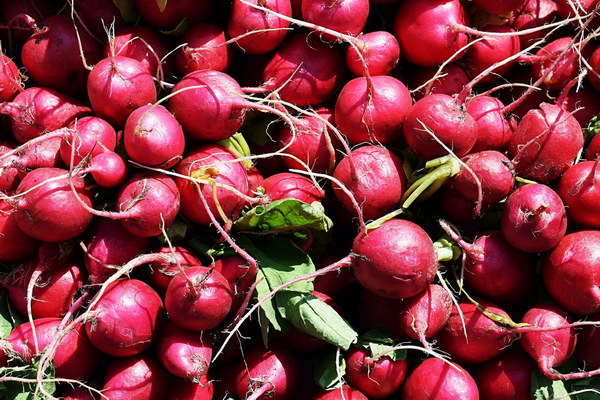Top 5 Traditional Chinese Herbs for Boosting Energy and Nourishing Qi A Guide to Herbal Teas for Health
In the realm of traditional Chinese medicine (TCM), the concept of Qi or vital energy plays a crucial role. Qi is believed to be the life force that flows through our body, and maintaining its balance is essential for good health. When our Qi is low, we may experience fatigue, weakness, and a lack of vitality. To combat this, TCM offers a variety of herbal remedies that can help replenish and balance our Qi. Here, we explore the top 5 traditional Chinese herbs for boosting energy and nourishing Qi, and how to prepare them as herbal teas for your daily wellness routine.
1. Ginseng (Panax ginseng)
Ginseng is one of the most renowned herbs in TCM for its ability to boost energy and enhance mental clarity. This root has been used for centuries to support the immune system, improve memory, and increase physical endurance. To prepare a ginseng tea, simply chop a 3-5 cm piece of ginseng root and simmer it in water for about 20 minutes. Strain the tea and drink it hot or cold, depending on your preference.
2. Astragalus (Astragalus membranaceus)
Astragalus is another powerful herb that has been used in TCM to boost Qi and strengthen the immune system. This herb is often combined with other ingredients to enhance its effects. To make an astragalus tea, steep 1-2 tablespoons of dried astragalus roots in hot water for about 15-20 minutes. Strain the tea and drink it once a day.
3. Goji Berries (Lycium barbarum)
Goji berries are a popular superfood in TCM, known for their ability to boost energy, improve vision, and enhance longevity. These berries contain a wealth of nutrients, including vitamins, minerals, and antioxidants, making them a great addition to your daily diet. To make a goji berry tea, simply steep a handful of goji berries in hot water for about 10 minutes. Strain the tea and enjoy it hot or cold.

4. Codonopsis (Codonopsis pilosula)
Codonopsis is a lesser-known herb in the Western world, but it's a staple in TCM for its ability to nourish Qi and support overall well-being. This root is often used to treat fatigue, weakness, and poor appetite. To prepare a codonopsis tea, chop a 3-5 cm piece of the root and simmer it in water for about 20 minutes. Strain the tea and drink it warm or cold.
5. Dong Quai (Angelica sinensis)
Dong Quai is a popular herb in TCM, particularly for women's health. This root is believed to balance the female hormonal system, improve circulation, and boost energy. To make a dong quai tea, chop a 3-5 cm piece of the root and simmer it in water for about 20 minutes. Strain the tea and drink it warm, as it's believed to be more effective when consumed hot.
While these herbal teas can be beneficial for boosting energy and nourishing Qi, it's important to consult with a qualified TCM practitioner before incorporating them into your wellness routine. TCM is a complex field, and individual health conditions may require specific herbal combinations or dosage adjustments.
In conclusion, traditional Chinese herbs offer a natural and effective way to boost energy and nourish Qi. By incorporating these top 5 herbs into your daily routine, you may experience improved vitality, mental clarity, and overall well-being. Remember to consult with a TCM practitioner for personalized advice and guidance.









